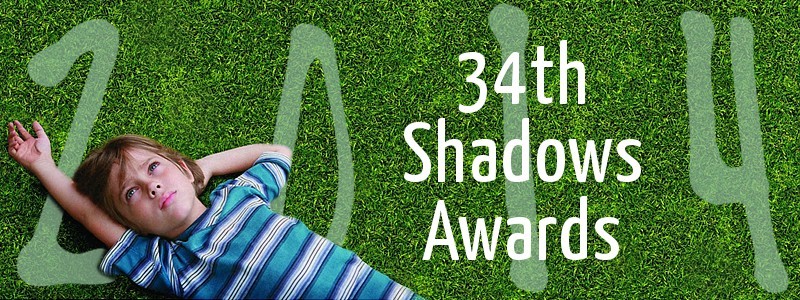 MUST
MUST  SEE
SEE
prd Lex Lutzus, Pamela Koffler, James Brown
with Julianne Moore, Alec Baldwin, Kristen Stewart, Kate Bosworth, Hunter Parrish, Shane McRae, Stephen Kunken, Daniel Gerroll, Erin Darke, Caridad Martinez, Seth Gilliam, Quincy Tyler Bernstine
release US 5.Dec.15, UK 6.Mar.15
14/US 1h41

I'm still here: Stewart and Moore



TORONTO FILM FEST
 In addition to a tour-de-force performance from Julianne Moore, this film is a strikingly intimate exploration of how dementia affects a person and a family. Sharply written and sensitively directed, a wry honesty and wary optimism keep it from ever being a story about a disease. Instead, it's packed with wrenchingly moving moments that give us a powerfully personal experience.
In addition to a tour-de-force performance from Julianne Moore, this film is a strikingly intimate exploration of how dementia affects a person and a family. Sharply written and sensitively directed, a wry honesty and wary optimism keep it from ever being a story about a disease. Instead, it's packed with wrenchingly moving moments that give us a powerfully personal experience.
Just 50, Alice (Moore) is a New York linguistics professor with an adoring husband John (Baldwin) and three lively grown kids: married and pregnant Anna (Bosworth), aspiring actor Lydia (Stewart) and free-spirit Tom (Parrish). When she starts forgetting words and getting lost, she consults her doctor and is diagnosed with early onset Alzheimer's. Even more shattering is the fact that her disease is familial, passed to at least one of her children. So Alice prepares a contingency plan and waits for what comes next. And her family members each react in their own way.
Moore gives another sensitive, smart, eerily raw performance as Alice, capturing her incremental shifts along with the unnerving realisation of what's happening to her. Baldwin is unusually restrained, especially as he reacts to Alice's jokes ("I'm sorry I forgot; I have Alzheimer's!") and darker thoughts ("I wish I had cancer"). His camaraderie with Moore is terrific as they try to create some new memories. Meanwhile, both Stewart and Boswell have a chance to dig deep. All of the interaction is beautifully individualistic, continually drawing out character details.
The film has a gentle, relaxed tone that never pushes the drama, even if the plot (based on Lisa Genova's book) feels a little on-the-nose. As in their other films, Glatzer and Westmoreland find the humanity in their characters, transcending any boxes these people might be pushed into. Here they use structure and editing to take the audience with Alice on this journey. They also wisely give Moore the space to create a staggeringly complex performance without any pushy melodrama or artificial pacing.
They also pack the film with subtly brilliant scenes, such as Alice's one-take first diagnostic interview. There are constant quiet touches that reveal details about her experience, especially as her symptoms expand beyond memory issues. Her speech to the Alzheimer's Association is especially staggering, highlighting the honest realities of how this disease affects one person specifically and a society at large. Alice's desire to stay connected to who she once was is seriously powerful, as is her lesson to live in the moment.
 |
themes, language | 9.Dec.14 |

 Still waiting for your comments ... don't be shy.
Still waiting for your comments ... don't be shy.
HOME | REVIEWS | NEWS | FESTIVAL | AWARDS | Q&A | ABOUT | TALKBACK
